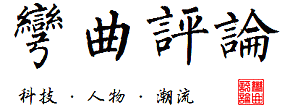中国的学术文化–来自施一公和饶毅的反思
作者 陈怀临 | 2010-09-04 08:08 | 类型 科学与中国, 行业动感 | 13条用户评论 »
|
【陈怀临注:中国的学术文化–来自重量级海龟施一公和饶毅的反思。发表在2010年9月3日的大辽科学杂志上。主要是谈了大宋的科研经费胡搞的问题。。。官僚主义,学霸,关系网。。。这一切都在限制着国家科学的发展。这一切的根源就是:制度,和因此而形成的不是文化的文化。】
从左至右分别为施一公教授、饶毅教授。施一公教授为清华大学生命科学学院院长,饶毅教授为北京大学生命科学学院院长。 文章来源:Science 3 September 2010: Vol. 329. no. 5996, p. 1128 China’s Research Culture CREDITS: TSINGHUA UNIVERSITY; DAVID RAO Government research funds in China have been growing at an annual rate of more than 20%, exceeding even the expectations of China’s most enthusiastic scientists. In theory, this could allow China to make truly outstanding progress in science and research, complementing the nation’s economic success. In reality, however, rampant problems in research funding—some attributable to the system and others cultural—are slowing down China’s potential pace of innovation. Although scientific merit may still be the key to the success of smaller research grants, such as those from China’s National Natural Science Foundation, it is much less relevant for the megaproject grants from various government funding agencies, which range from tens to hundreds of millions of Chinese yuan (7 yuan equals approximately 1 U.S. dollar). For the latter,the key is the application guidelines that are issued each year to specify research areas and projects. Their ostensible purpose is to outline “national needs.” But the guidelines are often so narrowly described that they leave little doubt that the “needs” are anything but national; instead, the intended recipients are obvious. Committees appointed by bureaucrats in the funding agencies determine these annual guidelines. For obvious reasons, the chairs of the committees often listen to and usually cooperate with the bureaucrats. “Expert opinions” simply reflect a mutual understanding between a very small group of bureaucrats and their favorite scientists. This top-down approach stifles innovation and makes clear to everyone that the connections with bureaucrats and a few powerful scientists are paramount, dictating the entire process of guideline preparation. To obtain major grants in China, it is an open secret that doing good research is not as important as schmoozing with powerful bureaucrats and their favorite experts. This problematic funding system is frequently ridiculed by the majority of Chinese researchers. And yet it is also, paradoxically, accepted by most of them. Some believe that there is no choice but to accept these conventions. This culture even permeates the minds of those who are new returnees from abroad; they quickly adapt to the local environment and perpetuate the unhealthy culture. A significant proportion of researchers in China spend too much time on building connections and not enough time attending seminars, discussing science, doing research, or training students (instead, using them as laborers in their laboratories). Most are too busy to be found in their own institutions. Some become part of the problem: They use connections to judge grant applicants and undervalue scientific merit. There is no need to spell out the ethical code for scientific research and grants management, as most of the power brokers in Chinese research were educated in industrialized countries. But overhauling the system will be no easy task. Those favored by the existing system resist meaningful reform. Some who oppose the unhealthy culture choose to be silent for fear of losing future grant opportunities. Others who want change take the attitude of “wait and see,” rather than risk a losing battle. Despite the roadblocks, those shaping science policy and those working at the bench clearly recognize the problems with China’s current research culture: It wastes resources, corrupts the spirit, and stymies innovation. The time for China to build a healthy research culture is now, riding the momentum of increasing funding and a growing strong will to break away from damaging conventions. A simple but important start would be to distribute all of the new funds based on merit, without regard to connections. Over time, this new culture could and should become the major pillar of a system that nurtures, rather than squanders, the innovative potential of China. | |
雁过留声
“中国的学术文化–来自施一公和饶毅的反思”有13个回复










这两哥们的英文确实相当好。许多词汇用的非常native。牛人就牛人呀。
施一公和饶毅两位大侠还是没说到根源哪里,为什么会产生这些问题? 民主社会的学术会有这些问题吗,关键还是在五毛。。说句实在话,五毛d看问题太透彻了,其祖宗有一句名言:知识越多越反动,大家都搞民主学先进,用科学方法办事情,那还有现有五毛的差事吗,靠五毛旗帜吃饭的人头至少有几千万,分布盘踞在各个系统要害,而且大有世袭传承之趋势,徒子徒孙有的是,如此风气,哪个系统能正常运转啊
在ZZ和行政系统,类似一朝天子一朝臣,不能完全任人唯贤,有一定执行力的必要性,西方MZ亦如此。当然,仍然需要真话/真实监控系统。
而在学术教育领域,是追求真理和教化社会的领域,必须把这种情况降到非常小,这里,真话和真实就是最最基本的一个要求,并由此反馈推动ZZ和行政系统的真话和真实,而中国目前是反向推动。中国已经基本到了真实真话的“文化革命”比经济发展更重要的时候,如果不解决这个系统问题,经济发展难助于社会进步。像当年鲁迅改行时认为医精神比医身体更重要,其实也更难,那么医学术教育比提高经济也更重要更难
需要真话/真实监控系统???
读和谐发展观读得脑子坏了??
党在国上 人在党上 让你做这个?
兲朝领导最新的变化就是,以前偷偷摸摸的做坏事,现在是厚颜无耻的做坏事。我以为是新中国红旗下的蛋终于上台了,没能力还没良心还不自知的一代。
往常换在哪个朝代,无论做的多么低下,都没人敢说直接我们选人就是不能任人唯贤吧。
反对官二代,反对世袭政治,反对封建意识,反对封建作风。
这文章读起来感觉还不是很native。用句还不到家。躲起来。。
皇帝的新装。
ZZ不妥协就是革命。
而绝大多数口号震天的革命者当真的革命到来的时候未必不是叶公好龙
这个两个哥们太狠了。一个清华院长;一个北大院长。然后又联合起来,。。。。哪天非整点事情出来。特别是那个江西人饶毅。楞把美国护照给毁了。。。基本上属于谭嗣同的人物,然后再扔到北大三角地这种地方浸淫N年,。。。以后的事情不敢想。。。。。。
无论结果如何,希望有新空气进来
中国发展最重要的的是科技,起基础作用的是人才。可是,作为国家的根本的人没钱,巧妇难为无米之炊。国家给钱,有能力的专心做学文的人没钱,甚至一些教授成了富二代的托儿所,人才可以被有钱人有权人践踏,只能说悲哀。
科技最重要吗?
施一公和饶毅两位大侠还是没说到根源哪里,为什么会产生这些问题? 民主社会的学术会有这些问题吗,关键还是在五毛。。
=================
根据透明国际这些年的排名,民主的印度明显比中国更腐败
学术排在中国后面的民主国家大把大把的
有空多上网转转,很多事情不是那么简单的,别一开口就跟五美分似的